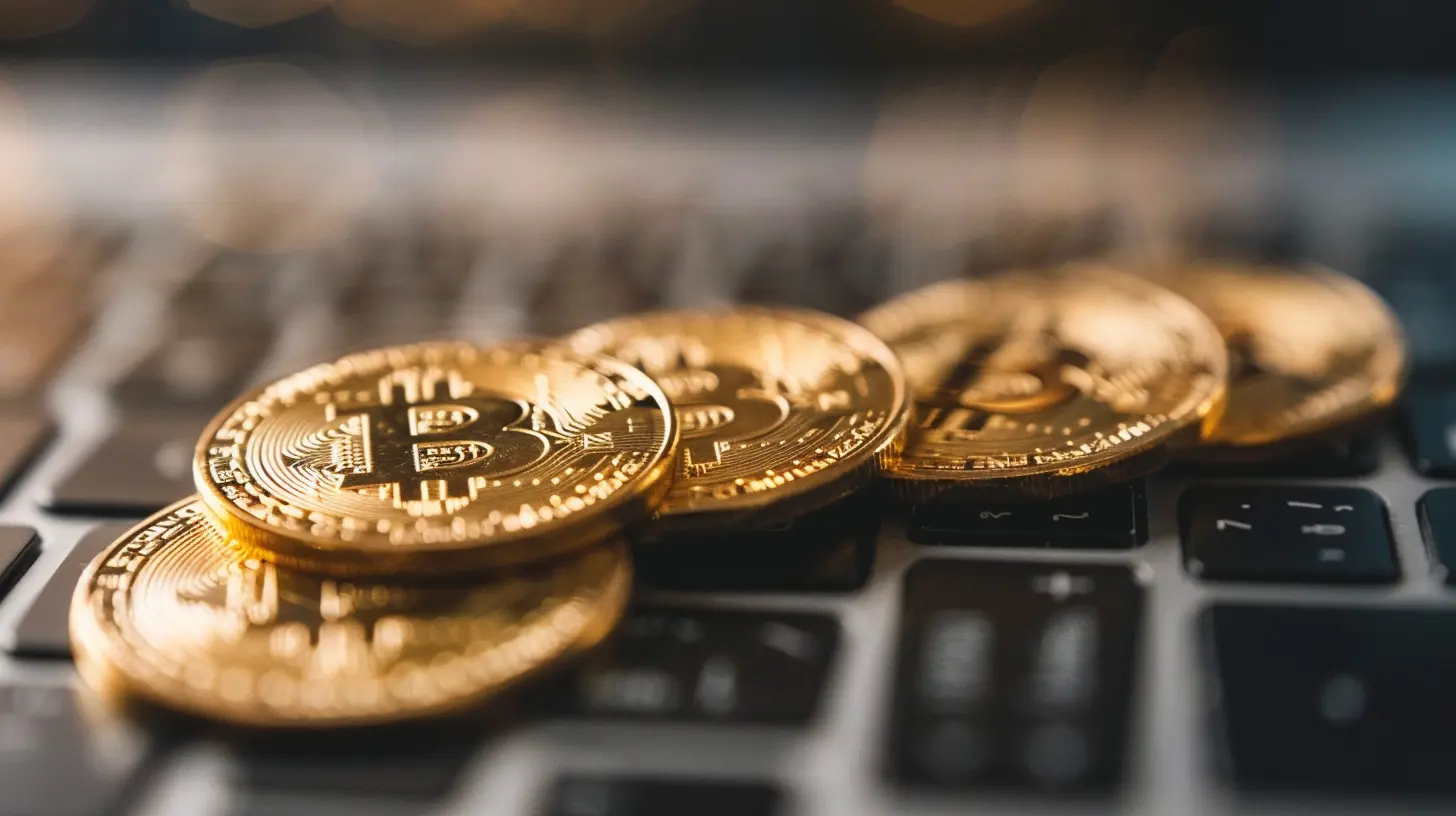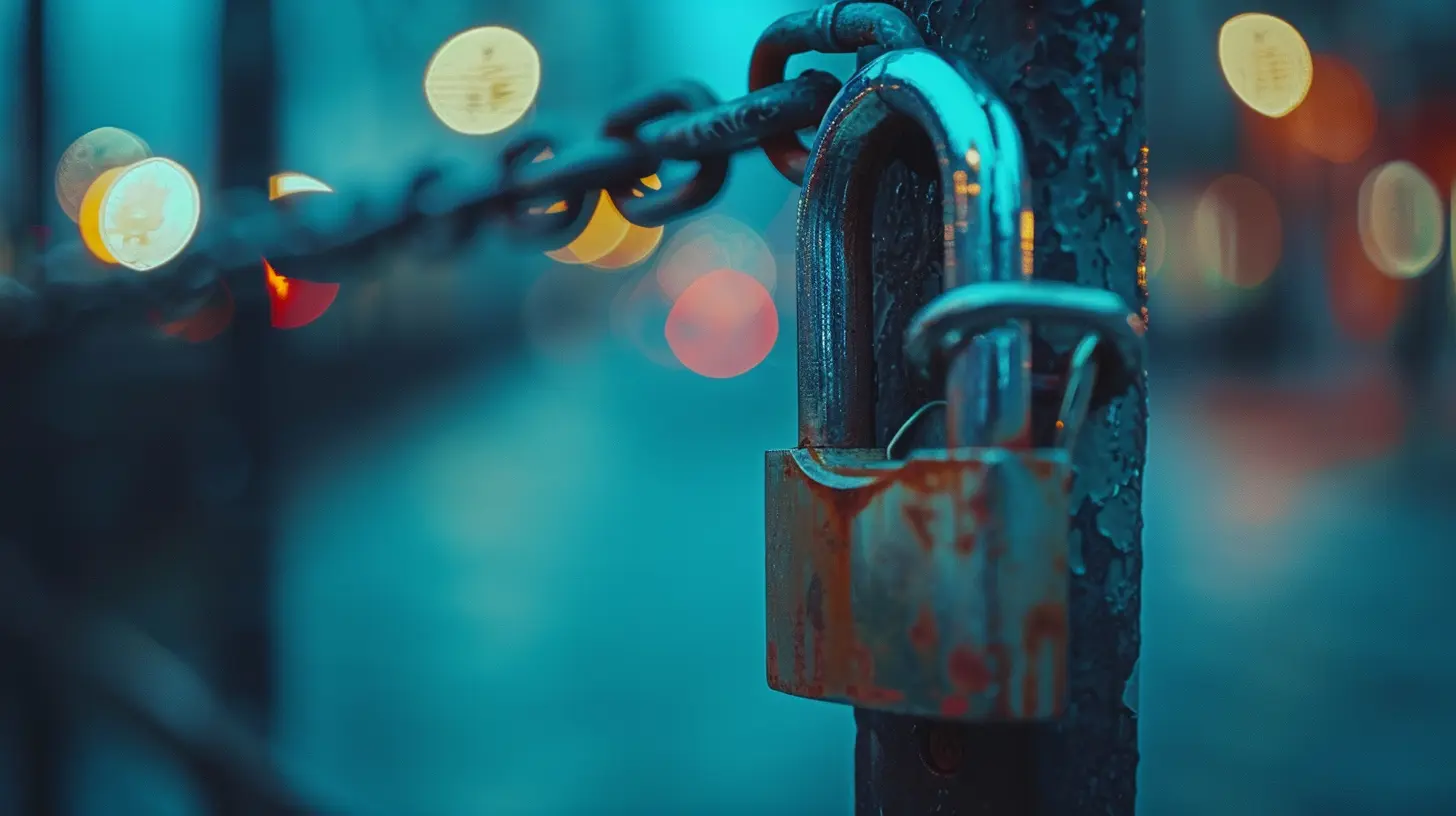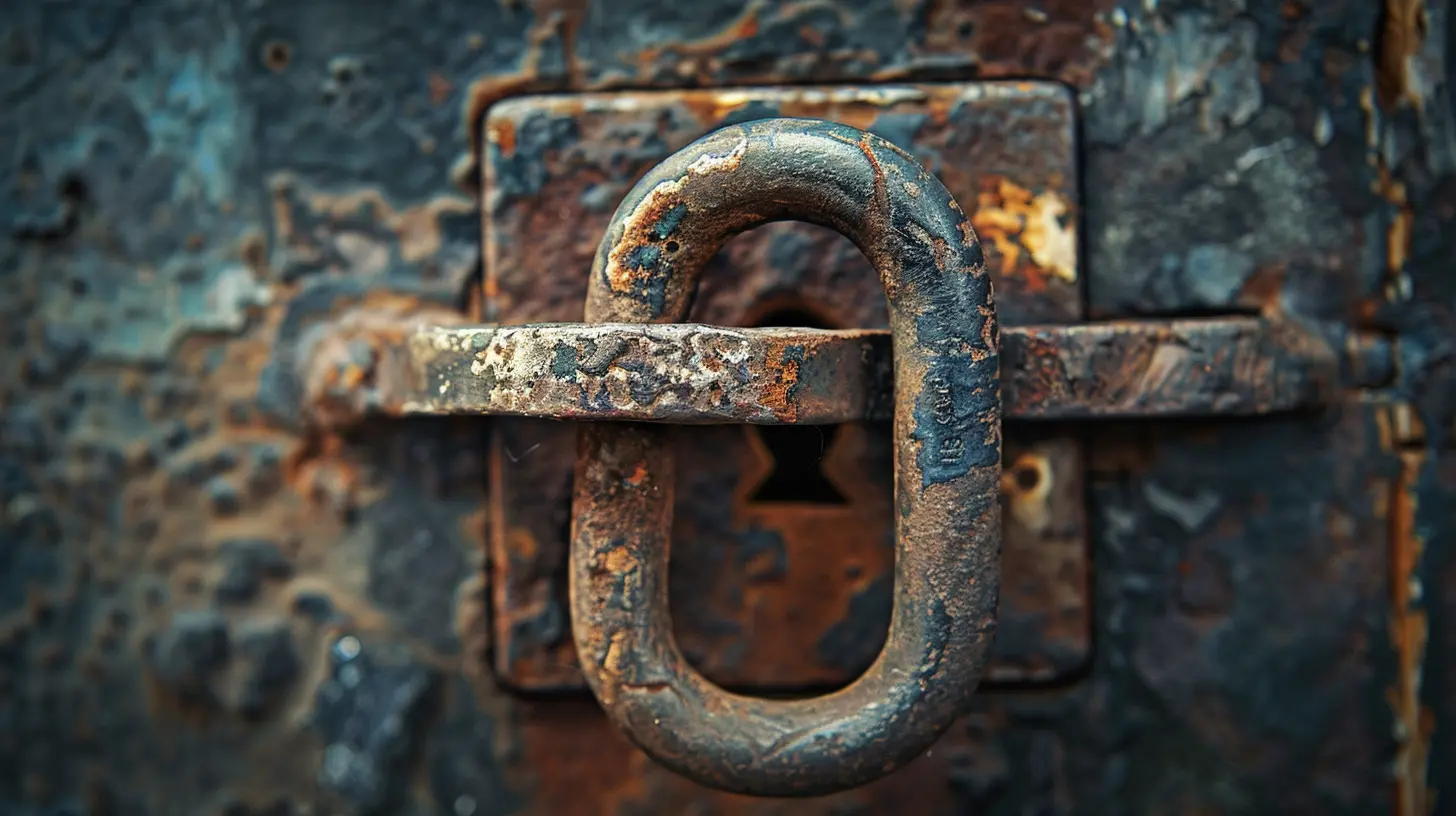How to Stay Secure While Using Cryptocurrency
1 October 2025
Cryptocurrency has revolutionized how we think about money. It's fast, decentralized, borderless, and—let’s be real—kind of exciting. But along with the freedom and innovation comes a double-edged sword: you’re also totally responsible for your own security. There’s no bank to call when something shady happens. No "forgot my password" option that’ll bail you out.
So, how do you stay safe in a world where one wrong click can drain your entire wallet? That’s what we’re going to unpack right here. Whether you’re HODLing, trading, or just dipping your toes into crypto for the first time, this guide’s for you.
Why Security Is Non-Negotiable in Crypto
Let’s start with the harsh truth: crypto is a goldmine—for hackers. Why? Because transactions are irreversible and pseudonymous, and many users don't follow even the most basic security practices.There’s no customer service hotline. Once your coins are gone, they’re gone. Poof. Gone like that mystery sock in the dryer.
Hackers know this. Phishing attacks, SIM swapping, malicious browser extensions, fake wallets... the list goes on. But don’t worry—you don’t need to be a cybersecurity genius to protect yourself. You just need some solid habits and a healthy dose of caution.
1. Use a Secure Wallet (Seriously, Don’t Skip This)
Where you store your coins matters more than you think. It’s a bit like keeping gold at home—you wouldn’t just leave it in a shoebox under your bed, right?🏦 Hot Wallets vs. Cold Wallets
- Hot Wallets are connected to the internet. Think mobile apps or browser extensions. Convenient? Absolutely. Safe? Not so much.- Cold Wallets are offline devices like hardware wallets (e.g., Ledger or Trezor). These are the Fort Knox of crypto storage.
If you’re holding significant value, a cold wallet is non-negotiable.
🛡 Tips for Wallet Security
- Always buy hardware wallets directly from the manufacturer.- Don’t store your seed phrase (recovery phrase) online.
- Write your seed phrase down on paper and keep it in a safe (or better yet, split it between multiple secure locations).

2. Master the Art of Passwords and 2FA
Your password is the first line of defense. If it's weak, you might as well unlock the door and invite hackers in for coffee.🔐 Create Strong, Unique Passwords
- Use a password manager like Bitwarden or 1Password.- Aim for at least 12 characters with a mix of letters, numbers, and symbols.
- Avoid using the same password across multiple platforms (yes, even if it's “really strong”).
🔄 Two-Factor Authentication (2FA)
Don’t skip this. Ever.- Use 2FA apps like Google Authenticator or Authy, not SMS (more on why in a minute).
- Avoid email-based 2FA—email accounts get hacked more often than you'd think.
3. Watch Out for Phishing Scams
Phishing is still one of the most effective tricks in the scammer’s book. Why? Because it preys on your trust and carelessness.🧠 How Does It Work?
You get an email or message pretending to be from a legit source—your wallet provider, exchange, or even someone you know. Click the link, enter your info, and boom—your crypto’s gone.🔍 Spotting and Avoiding Phishing Scams
- Always check URLs carefully. Scammers often use lookalike domains.- Never click on suspicious links or download attachments.
- Bookmark legitimate websites you use frequently.
- Be skeptical of DMs on Telegram, Discord, or Twitter offering “investment opportunities” or “free airdrops.”
4. Beware of Fake Apps and Wallets
Believe it or not, both the Apple App Store and Google Play Store have been fooled by fake crypto apps. Sometimes they look identical to the real thing. Download, set it up, transfer your coins—and then nothing.💡 What You Can Do
- Double-check the publisher’s name.- Use links directly from the official website.
- Read reviews (though be cautious—some might be fake too).
A quick Google search can save you thousands.
5. Don’t Trust, Verify
In crypto, there's a motto: “Don’t trust. Verify.” It’s not just a catchy line—it’s a lifestyle.Whether it’s a new project, wallet, or exchange, make sure you do your own research (DYOR). If something sounds too good to be true, it probably is.
🚩 Red Flags to Watch Out For
- Unrealistic returns or “guaranteed profits.”- Anonymous team or no transparency.
- Pushy marketing, hype trains, or FOMO tactics.
- Lack of listed contract addresses or code audits for DeFi projects.
6. Keep Your Devices Clean and Secure
Remember: your crypto is only as safe as the device you use to access it.🧽 Stay Cyber-Hygienic
- Keep your OS and all software updated.- Use a reliable antivirus solution.
- Don’t download pirated software—it often comes bundled with malware.
- Avoid using public Wi-Fi when accessing your wallet or exchange accounts.
Also, consider using a dedicated device just for crypto. It limits exposure and minimizes the chance of catching digital cooties.
7. Enable Address Whitelisting on Exchanges
Many centralized exchanges offer something called address whitelisting. Once enabled, funds can only be withdrawn to pre-approved wallet addresses.✨ Why This Matters
If someone gains access to your account, they can't just send your funds to their own wallet. They've got to go through your whitelist, which they can’t change without extra authentication.It’s an underused feature—but a seriously powerful one.
8. Watch Out for SIM Swapping
You might think your phone number is safe. Think again. SIM swapping is when a hacker tricks your phone carrier into transferring your number to their own SIM card.With access to your texts and calls, they can reset passwords, bypass 2FA, and hijack your accounts.
📱 How to Protect Yourself
- Never use SMS for 2FA.- Set up a PIN or password with your mobile provider for making changes to your account.
- Use authenticator apps and email accounts with strong security settings.
9. Don't Overshare Online
We get it—when you make a killer trade or finally land that rare NFT, the urge to brag is real. But sharing wallet addresses, balances, or screenshots can put a giant target on your back.Hackers are always watching. Oversharing makes social engineering way easier.
🤐 Keep a Low Profile
- Avoid linking your identity to wallet addresses.- Don’t share your crypto holdings or trades publicly.
- If you're involved in subreddits or Discord servers, consider using anonymous handles or burner accounts.
10. Back Up Everything, The Right Way
If you lose your keys, there’s nobody to help you. That's the beauty—and the curse—of crypto's self-sovereignty. So, back up your wallets and recovery phrases properly.📝 Best Practices
- Use offline backups—paper, metal seed phrase holders, etc.- Store backups in multiple physically secure locations (don’t put all your eggs in one basket).
- Never take a photo or screenshot of your seed phrase. Just... don’t.
11. Stay Educated (Crypto Never Sleeps)
This space moves at the speed of light. New protocols, new scams, new wallets—it’s like trying to drink from a fire hose. But staying informed is one of your best tools.📚 Where to Stay Updated
- Follow reputable crypto news sites (CoinDesk, CoinTelegraph).- Join educational communities like r/CryptoCurrency or Reddit’s r/Bitcoin.
- Listen to crypto podcasts or YouTube channels focused on security.
Treat learning about crypto security as an ongoing process—not a one-and-done.
Final Thoughts: Make Security a Habit, Not an Afterthought
Look, getting hacked or scammed in crypto isn’t just about losing money. It’s also the emotional toll, the regret, the “if only I’d...” thoughts that linger. But here’s the good news: it’s avoidable.Security in crypto isn't about doing one big thing right—it's about doing a bunch of small things consistently. It's less like building a fortress and more like making your digital footprint so boring and secure that hackers don't even bother.
So take the extra minute to double-check URLs. Get that hardware wallet. Turn on 2FA. Be that paranoid crypto friend who always says “Did you verify the contract address?” Because trust me—that’s the kind of friend worth having in this space.
Stay smart, stay skeptical, and most importantly—stay in control of your crypto.
all images in this post were generated using AI tools
Category:
Online SecurityAuthor:

Vincent Hubbard
Discussion
rate this article
1 comments
Chantal Kirkpatrick
“Staying secure in crypto? Treat your private keys like your toothbrush—never share and always keep them safe!”
October 10, 2025 at 11:15 AM

Vincent Hubbard
Great analogy! Just like a toothbrush, your private keys are personal and crucial for your security. Always prioritize their safety!


